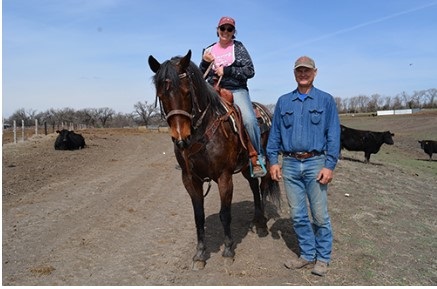BILLINGS, MT – R-CALF USA has given a decided thumbs-down to the recently modified Cattle Market Price Discovery and Transparency Act of 2022.
The group identified several substantive concerns including that the measure locks in for up to at least two years, if not indefinitely, the very market structure that facilitated and incentivized the alleged anticompetitive conduct the legislation is supposed to stop.
“The modified compromise bill will do nothing to provide timely relief for the untold number of cattle producers who are presently suffering, and who have suffered during the past seven years, from a chronically dysfunctional market and perhaps the most severe economic cost/price squeeze in history,” stated the group.
R-CALF USA recommends that Congress table the modified compromise bill pending the completion of its class action antitrust lawsuit against the four largest beef packers and the Department of Justice (DOJ) investigation to avoid what would constitute congressional approval for the current proportion of cash versus non-cash purchases in the marketplace.
The group also pointed out that the modified compromise bill’s regional structure will likely ensure that captive supply arrangements, also known as alternative marketing arrangements (AMAs), will continue to predominate the national cattle market, even while new economic research raise concerns that a market predominated by AMAs may not ensure that cattle prices respond appropriately to supply and demand signals.
Other concerns include the provision that allows packers between seven and 30 days to comply with mandatory minimum purchase requirements. The group stated this would allow packers to shun the cash market for one, two or more weeks, thus depriving cash sellers of timely market access.
R-CALF USA also stated that because the modified compromise bill contemplates different cash volume purchase requirements within each region, Congress presumably considers each region to be an economically independent geographic area. However, research cited in the review shows that is false as cattle are transferred from one region to another. As a result, the group noted cattle producers in one region could be denied timely access to the market if the packers in their region choose to purchase all or most of their cash purchases from a neighboring region.
Also noted by the group is that despite Congress’ delegation of authority to the U.S. Department of Agriculture to set mandatory minimum purchase requirements, Congress nevertheless precludes the USDA from setting such requirements above the 50% level. The group suggested this demonstrates Congress’ bias in favor of AMAs as such a restriction could prevent the establishment of minimum cash purchase requirements at levels research may show is necessary to achieve a competitive marketplace, such as a level of 60%.
Referring to the modified compromise bill as a “woefully inadequate response to the severe chronic crisis in the U.S. cattle industry,” R-CALF USA pointed out that not only will it take up to two years before any mandatory minimum purchase requirements are established; but also, Congress has authorized USDA to set the initial purchase requirements at the same levels as were realized on average during 2020 and 2021, a period during which USDA data show the cattle industry lost another 1,000 small, independent feedlots.












